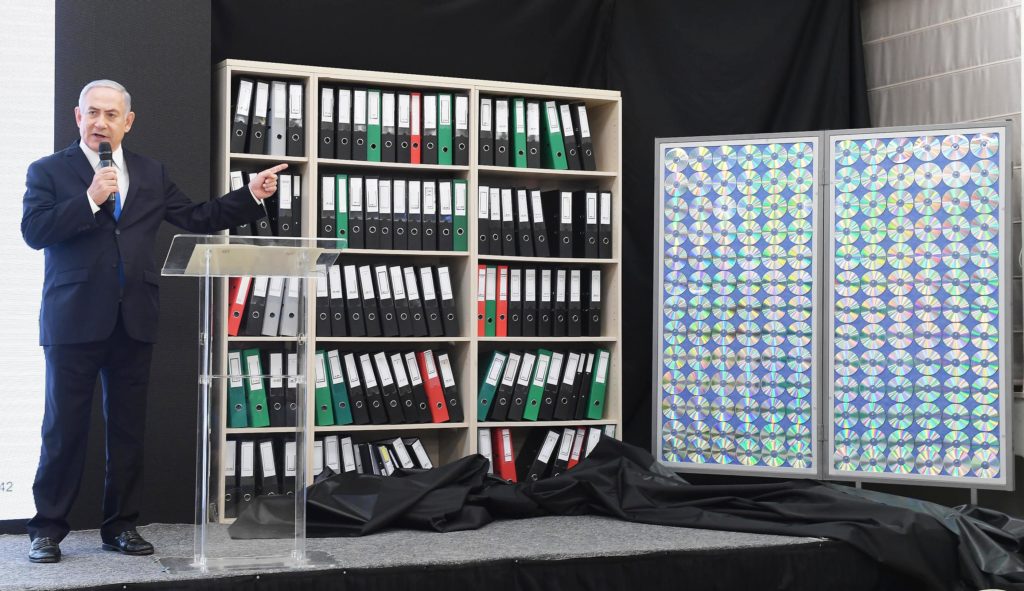
The powerful nations leading the United Nations nuclear watchdog last week called upon Iran to meet its obligations to provide access to suspected nuclear sites and answer questions about its activities, following concerns raised after lengthy Iranian defiance. Last week, Rafael Mariano Grossi—Director General of the International Atomic Energy Agency (IAEA)—was quoted on the IAEA website as telling the IAEA Board of Governors of his “serious concern” regarding Iran’s denial of access to multiple locations for more than four months and over a year of refusing to answer IAEA questions about potential nuclear material and activities.
On Friday, the Board—by a vote of 25-2 with seven abstentions—in a statement posted to the IAEA website echoed Grossi’s concerns and called upon Iran to “fully cooperate with the Agency and satisfy the Agency’s requests without any further delay.”
Israeli Prime Minister Benjamin Netanyahu on Sunday highlighted that these concerns are nothing new. “Iran is continuing to lie to the international community in order to attain nuclear weapons,” said Netanyahu in comments released by his office. “Today, even the IAEA, the International Atomic Energy Agency, understands this. Its report from over the weekend speaks for itself. These institutions now understand what we have been claiming for years.”
Signaling a further shift of concern from Europe over Iran’s nuclear actions, the IAEA Board of Governors’ resolution was actually initiated by the United Kingdom, France and Germany. Despite reiterating their efforts to mitigate American sanctions on Iran as the European nations cling to the collapsing Iran nuclear deal, the so-called E3 nations released a statement expressing “grave concern” about Iran’s refusal to accede to the IAEA requests.
In the statement, the E3 hinted at support for extending the arms embargo against Iran that is due to expire in October, despite their commitment to the nuclear deal—known as the Joint Comprehensive Plan of Action—that is linked to that lifting of the embargo. “We believe that the planned lifting of the UN conventional arms embargo established by [UN] Resolution 2231 [that ratified the JCPOA] next October would have major implications for regional security and stability,” said the E3 statement published by Germany, noting that EU arms embargos on Iran remain until 2023.
“…We wish to address the issue in close coordination with Russia and China as remaining participants to the JCPOA, as well as with all other Security Council Members, as well as other key stakeholders. We will be guided by these objectives: upholding the authority and integrity of the UN Security Council and working toward regional security and stability.”
Unfortunately for the E3, Russia and China may be difficult to sway: They were the only two nations to not support the latest IAEA Board of Governors’ resolution on Iran.
The United States, meanwhile, voiced their support for the IAEA resolution while calling upon the world to act if Iran continues to refuse to cooperate. “Iran’s denial of access to IAEA inspectors and refusal to cooperate with the IAEA’s investigation is deeply troubling and raises serious questions about what Iran is trying to hide,” US Secretary of State Mike Pompeo said in a State Department press release.
…If Iran fails to cooperate, the international community must be prepared to take further action.”
Pompeo highlighted two nefarious steps by Iran: their nuclear “escalation”—in which they have withdrawn from certain requirements of the JCPOA in protest of economic losses from US sanctions—and their having “stonewalled the IAEA.”
Said Pompeo, “Iran has so far shown no intention of curtailing the ongoing expansion of its nuclear program and for months has refused to provide the answers and access required for the IAEA to conduct its critical verification work. As the IAEA Board made clear today, Iran must immediately comply with its IAEA safeguards obligations and provide the IAEA nothing short of full cooperation.”
The top American diplomat made it clear where the US stands on Iran’s nuclear program.
“The United States remains committed to denying Iran any pathway to a nuclear weapon and will work through the IAEA’s Board of Governors to provide the IAEA the support it needs to resolve these serious matters,” said Pompeo. “…Given Iran’s prior covert nuclear weapons effort, it is imperative that Iran verifiably demonstrate that it has permanently abandoned all such work.”
(By Joshua Spurlock, www.themideastupdate.com, June 21, 2020)
